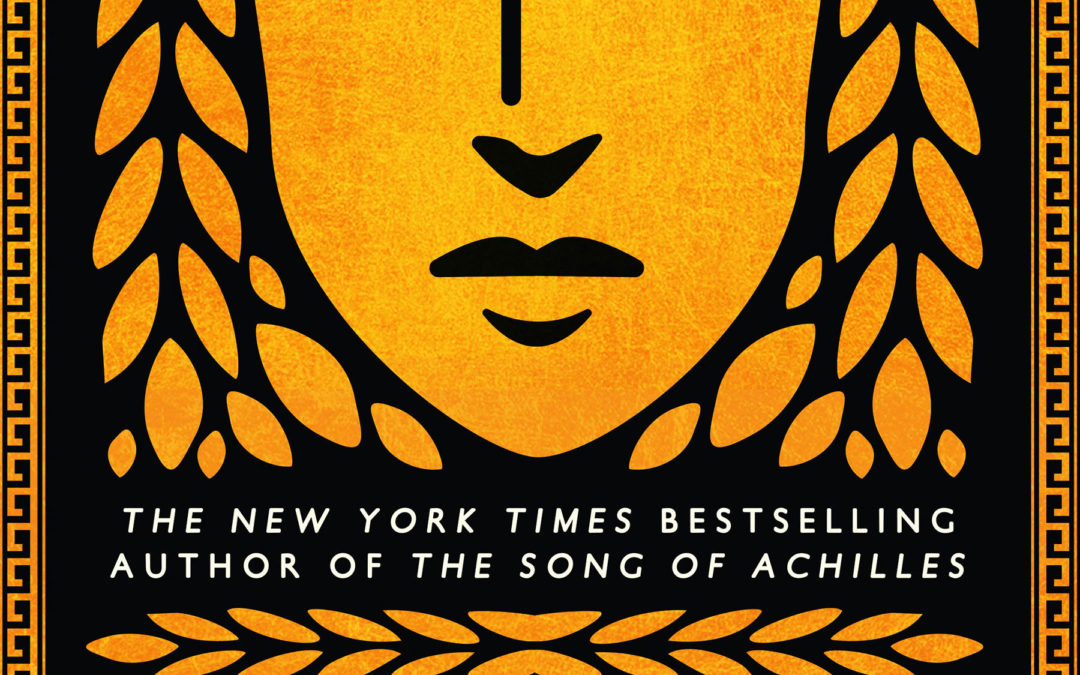Circe
by Madeleine Miller
–Review by Teri Hyrkas
Confession: I loved mythology as a teenager. Greek mythology, Norse mythology, and Native American legends, fables and stories were all on my bookshelf during my teen years. Filled with strong characters, many layered histories and tangled plots of gods and mortals, how could one resist the impossible journeys, outlandish exploits and clever solutions contained in these stories?
The publication, then, of Circe by Madeleine Miller was an intriguing invitation to re-visit an old interest. Circe, in Greek mythology, was the daughter of the sun god, Helios, and the water nymph, Perse. In the epic poem, The Odyssey, Circe was depicted as a trouble maker who had magic powers. She used her powers to bring humiliation upon the hero Odysseus and his crew of sailors when she turned the crew into pigs while they visited her island of Aiaia. At least, that is the story told by the great poet, Homer. But what if we heard the tale from Circe’s point of view? How might the story change if we learned what motivated Circe’s treacherous actions toward the sailors? What insights might we gain by revisiting the account not from the elevated position of the reigning gods, heroes and beloved poets but from the perspective of a belittled and ignored lesser deity who was considered a loser? This is exactly the setting that author Madeline Miller has created in Circe (Little, Brown& Co., 2018.)
Madeline Miller was uniquely prepared to be the author of Circe. When she was a little girl, her mother read the myths to her at bedtime and they immediately became her bedtime stories of choice. As she grew up, Miller continued to treasure mythology’s ancient legends and went on to study Latin and Greek in high school and then college. Her particular love was The Iliad and the character of Achilles, who is the subject of her first book, The Song of Achilles. It took ten years for Miller to write The Song of Achilles, which won The Orange Prize for Literature (UK) in 2012.
Interestingly, Miller has written Circe in the first person. Because of this autobiographical voice, we are privy to Circe’s thoughts. Miller uses this technique as a tool to enmesh us in Circe’s growth as a character. We empathize with her as Circe learns the truth about the nearly unstoppable power and divisive activities of her father and other family members. The reader is taken by surprise along with Circe when her love-based efforts to control her life backfire and Circe becomes the victim of her own naiveté. We grow in wisdom and shrewdness with Circe as she faces provocations from the whims of the gods and eventually experiences some success in her dealings with them.
It is very clear that Miller is in her element in the writing of Circe. She knows all the major and minor Greek gods and heroes and their messy disputes as they appear in the annals of mythology and we meet many of them in the course of the story. Miller is breezily familiar with the hierarchies, troubled relationships and perplexing back stories of the mythological characters and incorporates this knowledge into her bold — and sometimes crude — depiction of Circe’s life and that of her extended family. Circe, who Miller describes as a “fascinating character,” is a little known Greek god, and, says Miller, “is one of the few females in mythology who is able to live independently and have power without being punished for it…” There is also an aura of mystery that surrounds Circe which Miller wields to artful advantage in her book.
If this isn’t enough to win over the reader, Miller’s writing certainly is. Madeleine Miller’s writing is phenomenal. Through the metaphor rich thoughts of Circe, author Miller makes it possible for readers to be fully immersed into the dangerous expeditions, feats of bravery, the triumphs and the failures involved in the complex, interwoven stories of Greek mythology.
Here is a fun bonus: As wonderful as the book Circe is to read, it is even more enjoyable as an audiobook. Narrated by Welsh actress Perdita Weeks, the legends of the heroes as they appear in Circe’s story become more three dimensional with Weeks’ skillful reading. Weeks’ narration portrays the action and emotion of the fable wonderfully well, and her ease in pronouncing the Greek names of people and places lifts that burden from the reader, also.
According to the Bloomsbury website for London and Oxford, Circe is an international bestseller and was shortlisted for the Women’s Prize for Fiction (UK), 2019. It is also a Sunday Times (UK) bestseller and The New York Times (US) number one bestseller.
As much as I was glad to get another taste of mythology in Circe, it was noteworthy to read this line from the final chapter: “I thought once that the gods are the opposite of death, but I see now that they are more dead than anything… .” Strong words, and wise words, from the character Circe herself. And yet the confrontation between mercy and justice, love and betrayal, the weak and the powerful are very much alive today and the great myths continue to present these important struggles through poetry, song and entertaining sagas such as Madeline Miller has given us in Circe.

